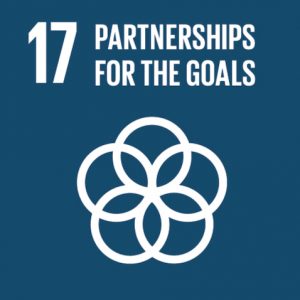Networking in the Global South
We are excited to announce another win in our work to collaborate with allies across the Global South. The London, UK-based Alliance of NGOs and CSOs for South-South Cooperation (ANCSSC – the Alliance) chooses PSYDEH as its first Mexican organization member.
The Alliance and why apply to be a member
The Alliance, with its 340 Global South NGOs and CSO members, targets the Sustainable Development Goals, especially 17 “Partnerships for the goals”, through supporting capacity-building, advocacy, and knowledge sharing across its network.
PSYDEH applied for membership because it helps us grow our ability to adapt and find solutions to empowering citizens, especially Indigenous women, to develop their own solutions to their own problems.
Once in the network, we will endeavor to be an ally to others like us in the Global South arguing to global funders for more equitable access to existing resources and count new allies by our side working for the same. We also believe that our unique grassroots voices, made possible by our majority-women, cross-discipline, multi-cultural, multi-lingual, and multi-nationality team executing our process-oriented program model, can benefit ANCSSC members. As Ryan Lavigne, PSYDEH development officer, states:
“Joining the ANCSSC’s vast network across the Global South opens up a new world of connections and opportunities for PSYDEH. We hope to leverage these relationships to learn about best practices for fighting inequality and poverty being used across the Global South, while also sharing what we have learned through our work in rural Hidalgo. In the end, being a part of ANCSSC will enhance the efficiency and quality of our impact-making work.”
 Organizations collaborating across the Global South
Organizations collaborating across the Global South
Practically speaking, it is not easy for the great majority of local-focused organizations to network with the aim to make a sustainable impact. For an outfit like PSYDEH, both we and our local women partner-beneficiaries and their nascent collectives lack the financial wherewithal to send representatives to conferences at which they can meet with other NGOs in the Global South.
NGO leaders also lack the time needed to forge win-win collaborations with other NGO leaders who face the same time crunch. We’ve lobbied other partnership-forming partners to dedicate the resource (human and money) we need to organize NGOs into win-win collaborations, but such is hard to do for myriad reasons.
And in countries like Mexico, a scarcity-focused, short-cited mindset dominates, in comparison to a more generative abundance, forward-looking mindset. In our experience, therefore, the competition for finite resources, engaging folks who don’t know what they don’t know about what is possible, means it is difficult to forge sustainable impact-making collaborations. We hope that the Alliance will help us overcome some of these challenges.
Barriers to Mexican organizations achieving Triangular Co-operation
The Alliance argues that triangular cooperation involves the kind of cooperation that creates jobs, strengthens trade, improves infrastructure, transfers technology, promotes regional integration, and benefits all countries involved. This is an exciting truth and yet easier said than done; we plan to give voice around solutions to the following kinds of barriers we and those like us face.
For a local-focused Mexican nonprofit like PSYDEH, we struggle to create sufficient brand recognition and/or that platform from which we can give a voice to this kind of co-operation. While we’ve made extraordinary gains in the area of growing and promoting our brand since 2015-2016, we’ve not yet graduated to space where our voice is known across the areas in which we work and Mexico, let alone the Global South.
Local and national challenges impede a regional and global outlook. We are a small, grassroots NGO relying heavily on our majority-volunteer staff. We struggle to survive let alone make a sustainable impact in our community-led development work, especially during the pandemic and with the current Mexican administration’s budget cuts on civil society. Thus, promoting and implementing technical cooperation among Mexican NGOs is hard and triangular cooperation feels like a fantasy.
Still, our aforementioned model does seem to be taking hold in the areas in which we work, and in the minds of investors and technical partners hailing from donor countries like Belgium, Canada, Germany, New Zealand, the Netherlands, the United Kingdom, and the United States. And, so, we hope membership in the Alliance will help us to accumulate the resources that would allow for a professional staff needed to imagine, seize and manage this style of co-operation.
More on the Alliance
Established to work in collaboration with the United Nations for South-South Cooperation, the ANCSSC (and the UNSSC) are both manifestations of a broader South-South cooperation framework, led by a number of guiding principles and objectives. The ANCSSSC’s vision is to empower civil society to establish a just world based on the values of South-South cooperation.
